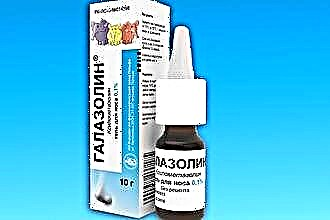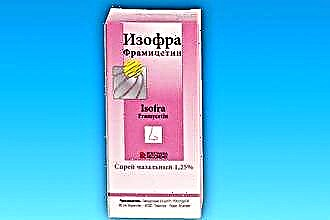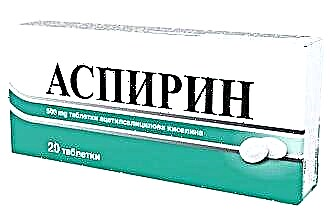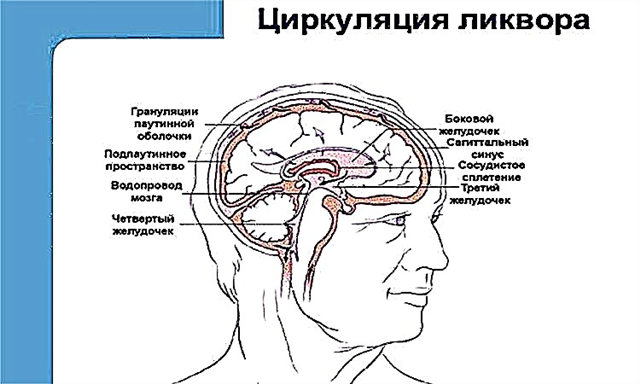 Nasal drops are prescribed taking into account the severity of the disease, the type of provoking factor, as well as the presence of concomitant pathology in humans.
Nasal drops are prescribed taking into account the severity of the disease, the type of provoking factor, as well as the presence of concomitant pathology in humans.
Nasal drops from the common cold have a different composition, mechanism of action and duration of the therapeutic effect. Here are the most commonly prescribed nasal drops for rhinitis:
- vasoconstrictor;
- mucolytic;
- antiseptic;
- antihistamines;
- hormonal;
- saline.
Vasoconstrictor drugs
The mechanism of action of the drugs of this group is due to the contact of the active substance with the adrenergic receptors of the blood vessels of the nasopharynx, as a result of which the latter are spasmodic. A few minutes after the instillation of the nasal passages, there is a decrease in the severity of tissue edema, the volume of secretions and relief of breathing.
The main disadvantage of vasoconstrictor drugs is their quick addiction.
Against the background of prolonged use of nasal drops with a cold, the sensitivity of the receptors to the active substance is lost. To obtain the initial therapeutic effect, a larger volume of the drug must be instilled.
If vasoconstrictor drugs are used in doses significantly higher than the norm, rhinitis medication develops, which is quite difficult to get rid of.
Important information
To reduce the volume of nasal discharge, it is recommended to instill 1-2 drops in each nasal passage. Depending on the composition of the medication, drops for a cold can provide sufficient patency of the nasal passages for 4-12 hours.
Healing drops have some side effects. They include:
- allergic reactions in the form of urticaria, burning sensation in the nose;
- increased heart rate;
- violation of the cardiac rhythm;
- increased blood pressure;
- dryness of the nasal mucosa;
- headache.
Even the best drops from a common cold have contraindications that should be taken into account:
- individual intolerance to the components of the drug;
- atrophic type of rhinitis. In this case, vasoconstrictor agents predispose to disease progression;
- uncontrolled hypertension;
- glaucoma;
- tachycardia;
- pronounced atherosclerotic vascular lesions;
- hyperfunction of the thyroid gland.
In addition, dosages and age restrictions are important (for both children and adults). Adults also need to be especially careful when using vasoconstrictor drugs while on antidepressant treatment.
In adults, unlike children, the risk of side effects is significantly lower. Despite this, rhinitis medication is often diagnosed in adulthood. As for the period of pregnancy, drops against the common cold are prescribed exclusively by a doctor.
Types of drops
All nasal drops that help reduce nasal discharge can be divided into groups. The classification is based on the active substance. Here is a list of ximetazoline-based vasoconstrictors:
 Galazolin;
Galazolin;- Gripostad Reno;
- Xymelin;
- For the nose;
- Otrivin;
- Rhinorus;
- Rinonorm;
- Xylo Mefa;
- Tizin Xylo.
The listed drugs last up to 6 hours. They are available in the form of a solution with various concentrations, which allows them to be used in childhood (0.05%).
If the active ingredient in the drug is Naphazoline, you must beware of quick addiction. These drugs include Naphtizin, Sanorin. They last up to 4 hours and are considered short-acting medicines.
The most common in use are drops for rhinitis based on oxymetazoline. Their effect can last up to 10 hours. These drops include:
- Nazivin;
- Nazol;
- Nesopin;
- Knoxprey.
For children, 0.025% solutions are recommended.
Regardless of the composition, vasoconstrictor drops should not be instilled more than four times a day. The treatment course should be a maximum of 8 days.
Mucolytics
What nasal drops help get rid of thick snot? A runny nose goes through three successive stages. Initially, there is a watery nasal discharge that is difficult to control. Over time, the snot becomes thicker and takes on a yellowish tint. With a normal level of immunity, recovery occurs in 4-5 days. If nasal discharge persists and a green tinge appears, it is worth suspecting the development of sinusitis. In this case, it is recommended to use mucolytics.
Their action is aimed at reducing the viscosity of mucus, restoring the drainage function and preventing the accumulation of secretions. The doctor may prescribe drugs with this name:
- Rinofluimucil;
- Sinuforte (plant based).
They have a mucolytic, decongestant effect. In addition, the drugs fight infectious pathogens, activate metabolic processes and improve the delivery of immune components to the inflammatory focus.
Application features
Mucolytic drops for the treatment of the common cold can be used for up to two weeks. They are recommended for chronic sinusitis and acute rhinitis of various origins.
What drops treat a runny nose? The effectiveness of therapy can be increased several times if Sinuforte is combined with an antibacterial drug, for example, Isofra.
Contraindications include pregnancy, severe cardiovascular disease and individual intolerance. In rare cases, after instillation of the nasal cavities, burning sensations, skin rashes, increased salivation and lacrimation may appear.
Antiseptics
What drops from the common cold are best used for infectious rhinitis? Antibacterial drugs are prescribed taking into account the type of pathogenic microorganisms that caused the disease. For diagnosis, nasal swabs are collected, followed by microscopic and bacteriological examination. Based on the test results, the treatment tactics are determined.
Medicines such as Bioparox contain an antibacterial agent. It can be combined with a hormonal and vasoconstrictor substance, like Polydex's.
Thanks to the regular use of these drops, the severity of the inflammatory process is reduced by eliminating microbes (as the cause of the disease). The drugs are capable of completely destroying the infection or blocking the multiplication of pathogenic pathogens.
Recommendations
Isofra can be prescribed in childhood, as well as during gestation. The restrictions apply to people who are allergic to framycetin. In the case of prolonged use of the drug, a violation of the microflora of the nasopharynx and a decrease in local immunity are possible.
Polydexa are the most effective drops, as they have a combined composition. The drug has significantly more contraindications. They include:
 lactation;
lactation;- acute period of viral diseases;
- glaucoma;
- renal dysfunction;
- pregnancy;
- age up to three years.
Also good drops for the common cold - Protargol, Miramistin, Dioxidin. They are not addictive, are widely used not only in otolaryngology, but surgery, urogynecology.
Medicines have antiseptic, anti-inflammatory and regenerative effects. Contraindications for Protargol include intolerance to silver and albumin.After instillation of the nasal passages, itching sensations, dryness of the nasal mucosa, and headache may occur.
Antihistamines
Antihistamine drops are prescribed for allergic rhinitis to reduce mucosal edema and facilitate nasal breathing.
Effective drops for the common cold:
- Levocabastine (Tizin Alerji);
- Allergodil;
- Kromosol.
Each drug has a specific mechanism of action, which makes it possible to choose the most effective drugs for each case of allergic rhinitis.
Allergodil
The drug is prescribed widely enough due to its powerful anti-inflammatory, anti-allergic action. It can be used for hay fever or year-round rhinitis. Among the contraindications, attention should be paid to the intolerance of azelastine, which is the active ingredient of Allergodil. In addition, the drug is not used until the age of six. As for the period of pregnancy, Allergodil is allowed, since it does not have a mutogenic effect on the embryo. After nasal instillation, in rare cases, there may be a burning sensation, itching sensations in the nasopharynx, frequent sneezing and nasal bleeding.
The appearance of a bitter taste in the mouth is a consequence of improper administration of the medicine.
The drug can be used for six months, but requires dynamic medical supervision.
Kromosol
Drops from the common cold Kromosol are prescribed for prophylactic purposes for hay fever, as well as for the treatment of allergies. Contraindications include hypersensitivity, lactation period, under five years of age, pregnancy. Caution should be observed in the presence of polyposis growths in the nasal cavities, renal, liver failure. Adults need to instill three drops up to four times a day.
The duration of the course is 4 weeks, after which the dose of the drug should be reduced within 10 days until it is completely canceled.
Due to the membrane-stabilizing action, the release of biologically active components that stimulate the development of allergies is blocked. Of the side reactions, we single out:
- irritation of the mucous membrane;
- burning sensations;
- frequent sneezing;
- cough;
- increased rhinorrhea;
- headache;
- unpleasant taste sensations;
- nasal bleeding.
Hormonal drops
 In some cases, rhinitis cannot be cured with antihistamines and antibacterial agents, so the doctor may decide to prescribe corticosteroids. They have powerful anti-inflammatory, anti-edema and antihistamine effects.
In some cases, rhinitis cannot be cured with antihistamines and antibacterial agents, so the doctor may decide to prescribe corticosteroids. They have powerful anti-inflammatory, anti-edema and antihistamine effects.
Long-term use of hormonal nasal agents can be accompanied by addiction and a decrease in the immune defense of the nasopharyngeal mucosa.
Indications for hormone therapy:
- vasomotor rhinitis;
- allergic rhinitis;
- atrophic, hypertrophic rhinitis;
- polyposis;
- medicated rhinitis.
Usually, corticosteroids are prescribed as part of a combination therapy. Nowadays, there is a wide variety of drugs, which allows you to choose the most acceptable in terms of price, composition and duration of action.
Steroid medicines include:
- Fliksonase;
- Beconase;
- Nasobek;
- Nazonex;
- Avamis;
- Aldecin.
In most cases, hormonal drops are prescribed once a day. They act locally, are not absorbed into the general bloodstream, and therefore do not have a systemic effect.
Contraindications include hypersensitivity to the components of the drug. Among the side effects, we focus on:
- nasal bleeding;
- ulcerative lesion of the nasopharyngeal mucosa;
- headache.
Systemic adverse reactions occur when the recommended dose is exceeded, as well as prolonged use of steroid drops.
Saline solutions
A separate group of drugs is made up of salt solutions based on seawater. They have a positive effect on the nasopharyngeal mucosa, namely:
- cleanse the inner surface of the nose;
- moisturize fabrics;
- accelerate regeneration;
- enhance the protection of the mucous membrane;
- reduce the irritating effect of environmental factors.
Remember that medicinal drops (hormonal, vasoconstrictor, antibacterial) are applied only to the mucous membrane cleaned with saline.
Products based on sea water are absolutely safe. Here are a few of them:
- Aqualor;
- Humer;
- Marimer;
- Salin;
- But-salt;
- Aqua Maris.
Saline is a cheaper substitute for these drugs. Thanks to comprehensive treatment, a runny nose can be cured in a week and prevent the development of serious complications. If attempts at home therapy are unsuccessful, see your doctor.

 Galazolin;
Galazolin; lactation;
lactation;

